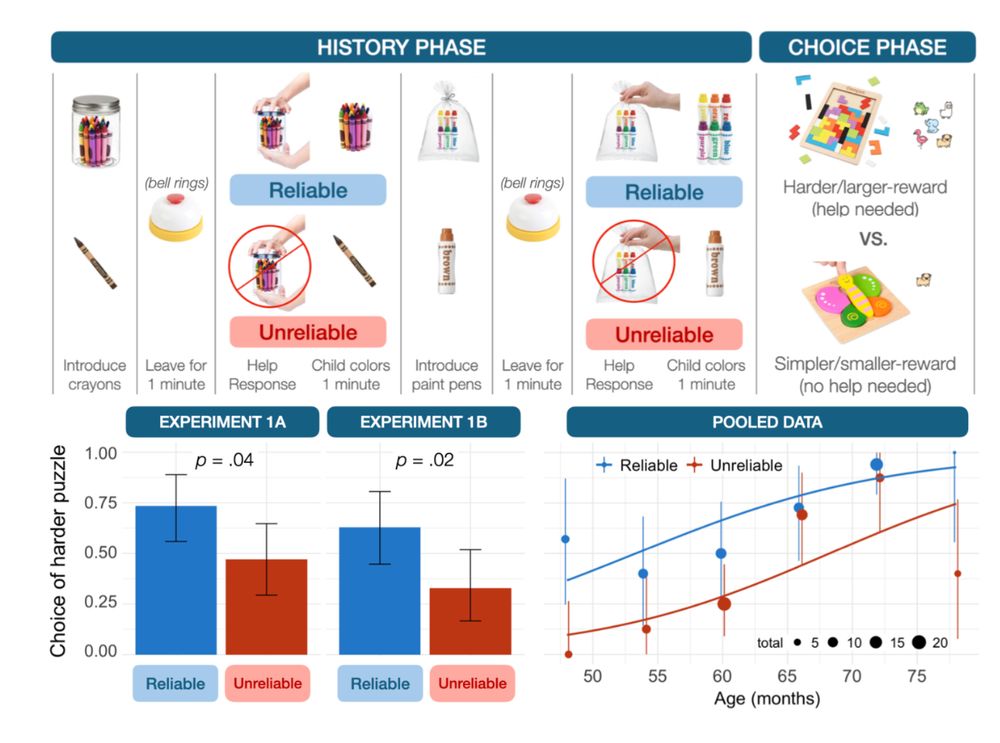
www.socialdecisionlab.net


@tgham.bsky.social
@bernhardspitzer.bsky.social
www.nature.com/articles/s44...

@tgham.bsky.social
@bernhardspitzer.bsky.social
www.nature.com/articles/s44...
@alexandertagesson.bsky.social
@philipparnamets.bsky.social
www.nature.com/articles/s44...

@alexandertagesson.bsky.social
@philipparnamets.bsky.social
www.nature.com/articles/s44...
www.nature.com/articles/s41...
www.nature.com/articles/s41...
"Leveraging Natural Language Processing for Data-Driven Agent-Based Modelling of Online Cultural Dynamics"
www.exeter.ac.uk/v8media/recr...
More details here:
www.exeter.ac.uk/study/fundin...
"Leveraging Natural Language Processing for Data-Driven Agent-Based Modelling of Online Cultural Dynamics"
www.exeter.ac.uk/v8media/recr...
More details here:
www.exeter.ac.uk/study/fundin...
Humans are imperfect decision-makers, and autonomous systems should understand how we deviate from idealized rationality
Our paper aims to address this! 👀🧠✨
arxiv.org/abs/2510.25951
a 🧵⤵️

Humans are imperfect decision-makers, and autonomous systems should understand how we deviate from idealized rationality
Our paper aims to address this! 👀🧠✨
arxiv.org/abs/2510.25951
a 🧵⤵️
New paper: "Young children strategically adapt to unreliable social partners" - led by Kat Shannon, with @hyogweon.bsky.social and Willem Frankenhuis.
osf.io/preprints/ps...


New paper: "Young children strategically adapt to unreliable social partners" - led by Kat Shannon, with @hyogweon.bsky.social and Willem Frankenhuis.
osf.io/preprints/ps...
This leads people to radically overestimate the degree to which political outgroup members support immoral actions
Democrats and Republicans are both off in their estimates. academic.oup.com/pnasnexus/ar...

This leads people to radically overestimate the degree to which political outgroup members support immoral actions
Democrats and Republicans are both off in their estimates. academic.oup.com/pnasnexus/ar...
ojs.aaai.org/index.php/AA...
ojs.aaai.org/index.php/AA...

Algorithmic Primitives and Compositional Geometry of Reasoning in Language Models
www.arxiv.org/pdf/2510.15987
🧵1/n

Algorithmic Primitives and Compositional Geometry of Reasoning in Language Models
www.arxiv.org/pdf/2510.15987
🧵1/n
In our new preprint we show how tech companies like Meta are capturing research on their product, using mechanisms that subtly (or not so subtly) shape what science gets produced

In our new preprint we show how tech companies like Meta are capturing research on their product, using mechanisms that subtly (or not so subtly) shape what science gets produced
"AI use in American newspapers is widespread, uneven, and rarely disclosed"
arxiv.org/abs/2510.18774


"AI use in American newspapers is widespread, uneven, and rarely disclosed"
arxiv.org/abs/2510.18774

Our new preprint, led by
@anilyaman.bsky.social & @ts-brain.bsky.social
shows that semantic knowledge guides innovation and drives cultural evolution. 🧠📘 arxiv.org/abs/2510.12837

Our new preprint, led by
@anilyaman.bsky.social & @ts-brain.bsky.social
shows that semantic knowledge guides innovation and drives cultural evolution. 🧠📘 arxiv.org/abs/2510.12837
onlinelibrary.wiley.com/doi/10.1111/... w @chrismmcox.bsky.social

onlinelibrary.wiley.com/doi/10.1111/... w @chrismmcox.bsky.social
doi.org/10.1038/s442...

doi.org/10.1038/s442...
@sucholutsky.bsky.social and I are seeking a postdoc and RA for a project on trust in AI systems with folks at NYU, Princeton, BU, and Cornell
Positions open until filled. Apply soon! Please share 🔁
postdoc: apply.interfolio.com/175495
RA: apply.interfolio.com/175497
@sucholutsky.bsky.social and I are seeking a postdoc and RA for a project on trust in AI systems with folks at NYU, Princeton, BU, and Cornell
Positions open until filled. Apply soon! Please share 🔁
postdoc: apply.interfolio.com/175495
RA: apply.interfolio.com/175497
Worry makes people avoid reusing actions that co-occurred w/ threat!
📄: osf.io/preprints/ps...
🧵 1/12

Worry makes people avoid reusing actions that co-occurred w/ threat!
📄: osf.io/preprints/ps...
🧵 1/12
doi.org/10.1016/j.ch...
doi.org/10.1016/j.ch...
Preprint: Jan Pfänder and Hugo Mercier "The rational impression account of trust in science"
Preprint: Jan Pfänder and Hugo Mercier "The rational impression account of trust in science"
doi.org/10.1016/j.ch...
doi.org/10.1016/j.ch...
experiential learning with Large Language Models".
doi.org/10.31234/osf...
experiential learning with Large Language Models".
doi.org/10.31234/osf...
experiential learning with Large Language Models".
doi.org/10.31234/osf...

